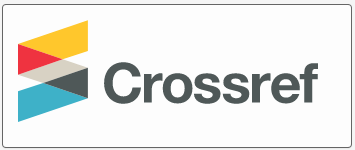Information vs Misinformation: Global Challenges
DOI:
https://doi.org/10.52340/idw.2023.88Keywords:
Social media, traditional media, disinformation, fake news, regulations, media literacyAbstract
In the era of the digital revolution, the advancement of social media has created global challenges and caused a kind of erosion of traditional media. All responsible media have faced the common problem of spreading fake news and disinformation. The main function of the media - to serve the truth - has been called into question.
Social media creates fertile ground for spreading fake news. Technologically straightened software allows creation of real-life sites. This platform offers news in its news field. And many social media accounts are used to spread misinformation. The abundance of information sources on the Internet makes it difficult to know which ones are based on facts, half-truths or lies. This is where the actual packaging of fake news takes place in such a way that it is difficult for consumers to identify this type of information. The sharing service facilitates the circulation of misinformation and its viral spread, which is followed by a strong negative ripple effect.
Fake or false information is packaged as "authentic" and is intended to manipulate opinion. The fabrication of fake news is associated with specific groups, individuals acting in their own, or others' interests. The circulation of fake news is often motivated by political-economic pretexts. In its form, it is very similar to the information distributed by the traditional media; however, all ethics regarding accuracy have been violated. This type of information covers different areas. It can be about politics, economics, aliens, masonic conspiracies, food, stock markets, and more.
Social media platforms, in turn, have taken a number of additional measures to combat fake news and disinformation. The power of democratic speech is more important today than ever. Faced with fake news, society needs a new model of communication culture. It is developing critical thinking that is the best defense against fake news.
Downloads
References
ეკონომიკური პოლიტიკის კვლევის ცენტრი. (2020). დეზინფორმაციის კვლევა და გაუვნებელყოფა საქართველოში. სოციალური მედიის მონიტორინგი და ანალიზი. საბოლოო მოხსენება. (მოძიებულია: 02.05.2023). https://eprc.ge/wp-content/uploads/2022/02/georgian_a5_size-up.pdf
კოვაჩი ბ., როზენსტილი ტ. (2006). ჟურნალისტიკის ელემენტები. თბილისი.
საქართველოს საკანონმდებლო მაცნე. (2022). საქართველოს კანონი სიტყვისა და გამოხატვის თავისუფლების შესახებ. (მოძიებულია: 02.25.2023). https://matsne.gov.ge/ka/document/view/33208?publication=7
პოზეტი, ჯ., ირეტონი, ნ., უორდლი, კ., დერაქშანი, ჰ., მეთიუსი, ე., აბუ-ფადილი, ბ. (2021). ჟურნალისტიკა, „ყალბი ამბები“ და დეზინფორმაცია. გაერთიანებული ერების განათლების, მეცნიერებისა და კულტურის ორგანიზაცია. (მოძიებულია: 02. 05.23). https://unesdoc.unesco.org/ark:/48223/pf0000375682
Gamba, F. (2018). La mécanique du mensonge. Les magazine scientifique del’Unige. Geneve. (მოძიებულია: 21.04.23) https://www.unige.ch/campus/numeros/133/dossier1/
Kalsnes, B. (2018). Fake News. Oxford Research Encyclopedia of Communication (p.1).
Pomeransev, (2019). Breaking the Polarization Spiral. (მოძიებულია: 28.04.23). https://www.the-american-interest.com/2019/07/10/breaking-the-polarization-spiral/
Saldago, C. (2017). Mensonges dans les réseaux sociaux. Unesco Courier. (მოძიებულია: 25.04.23). https://fr.unesco.org/courier/july-september-2017/fake-news-ce-quen-pensent-journalistes
Press release. (2023). Global Community Must Tackle Potential Misuse, Abuse of Emerging Technologies, Deputy Secretary-General Stresses in Remarks at Digital Dilemmas Exhibition. (მოძიებულია: 25.04.2023)







